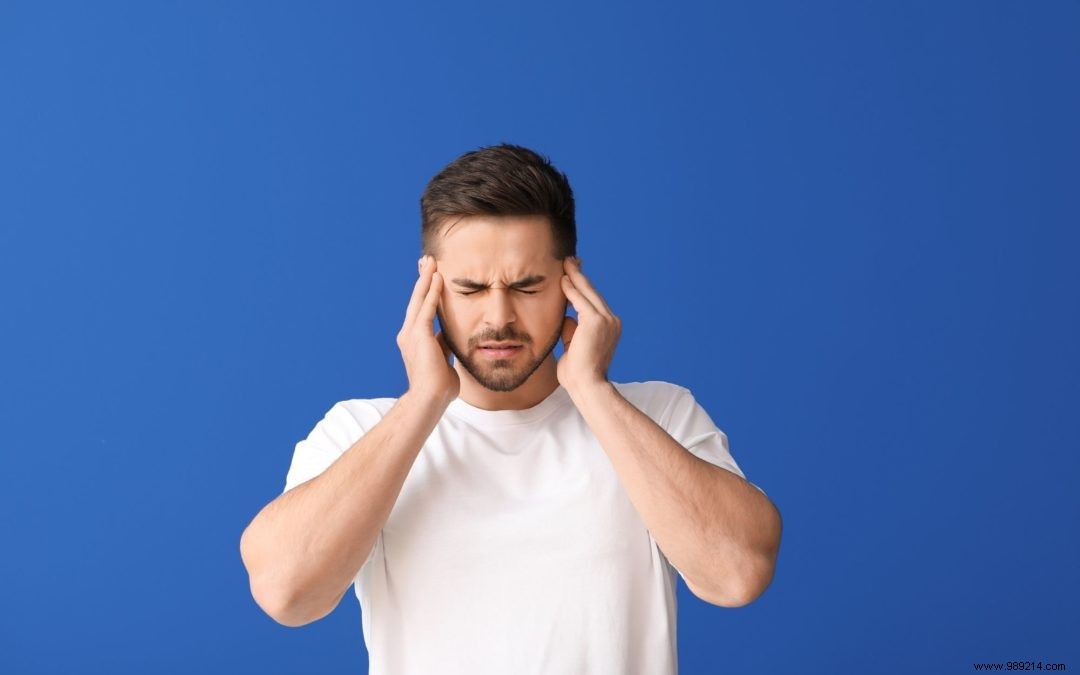
After a major sound exposure (concert, work, etc.), or an illness, do you feel a momentary difficulty in understanding speech or a hearing problem? While many are waiting for this inconvenience to pass, in the field of hearing, it is important to act. Indeed, the functioning of the brain and the mechanisms of the ear are interdependent. The quality of your health, your social life and your cognitive abilities depends on these good cogs. We decipher for you the different causes of sudden deafness, and give you our advice to recover your hearing abilities!
A fluffy, hissing or buzzing effect appears after exposure to sound, this indicates that the intensity of the sound and its duration have been found to be toxic to the cells of the ear. This happens during prolonged listening at high volume with headphones, after a concert, after a night out at the disco or a private party next to the speakers. Just as it happens after having tinkered with powerful materials without having worn individual protection against noise. These disorders appear after because during, there is no feeling of pain, no alert. These symptoms are a sign that your ears have suffered acute sound trauma. The result can be the same in case of repetitive trauma called "chronic sound trauma".
If this happens to you, the golden rule is to put your ears to rest in a calm sound environment. If after 8 hours of recovery, the symptoms persist, it is then essential to consult your doctor or the emergency room of the hospital center in your area.
All it takes is a plug of earwax, that famous little natural wax found in the ear canal, for the eardrum to no longer vibrate properly. It is then that the sound information no longer reaches your brain correctly, which in fact will have difficulty decoding the sound information properly. It is then necessary to go to the ENT doctor to have it checked and, if necessary, to have the obstructing amalgam removed.
Discomfort in understanding speech can also occur in cases of serous otitis, especially in children under 6 years old. It is a chronic inflammation of the middle ear with the presence of a liquid behind the eardrum. This will gradually prevent the eardrum from vibrating properly. Unlike otitis externa, the person does not have pain at first and the symptoms appear gradually, including the modification of speech comprehension abilities. Again, medical consultation is required. But it is enough to take a bath, to swim in the pool, to have surfed to also encounter discomfort and if it persists, it can be the result of water concentrated in the conduit (to be removed with a small tissue paper towel) or otitis externa. The pain will alert you quickly.
On a daily basis, we all experience momentary difficulties in understanding speech. The ear is subjected to different sound exposures that generate acoustic stress. The more it is present, the more the sound information received by the brain is difficult to decode. To remedy this, it would be enough to integrate a recovery time. This auditory rest period is the golden rule in terms of hearing. Sleeping time in a calm environment (30 dB maximum) corresponds to a life-saving break for your ears.
From the age of 55 – 60, a large majority of human beings experience a decrease in hearing abilities. This natural phenomenon is called presbycusis and is linked to the aging of ear cells with advancing age. It is then that difficulties in understanding speech set in on a daily basis. To do nothing is to take the risk of not daring to repeat and to withdraw into oneself, away from others. Recent scientific studies have demonstrated the need to maintain auditory functions in order to properly stimulate the brain. Here again, for a good balance of health and social life, it is advisable to consult rather than let it happen.
But the decrease in hearing abilities can also occur during the course of life even before presbycusis for multiple reasons:ototoxic sound exposures, diseases, cranial shocks etc. The maintenance of auditory functions is essential for the general balance of health and the quality of social and professional life, and the acquisition of learning. To wait or "let it go" is to put cognitive functions in difficulty and take the risk of tarnishing one's social and professional trajectory. Solutions exist to avoid this and they are based on medical care.
In any case, because it is not always easy to notice a hearing discomfort or disorder, the ENT doctors of the National Day of Hearing association invite to integrate regular medical monitoring of their hearing, in the same way as the other health determinants. The ideal rhythm would be to carry out a hearing assessment at least once every 5 years before the age of 50 and once every 3 years after. In children, the key stages are indicated in the health record. Finally, at the slightest symptom, consult.